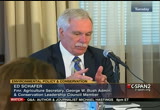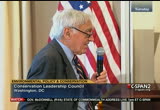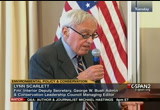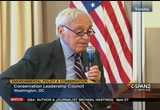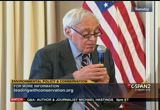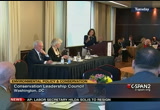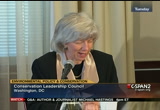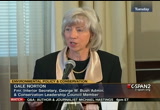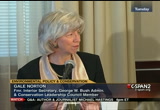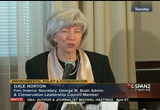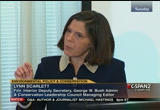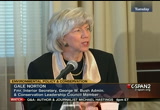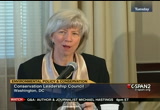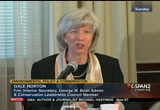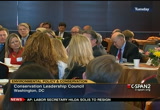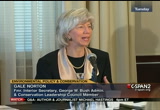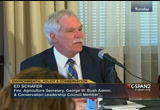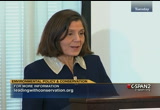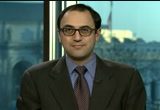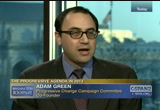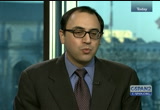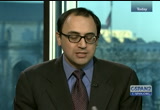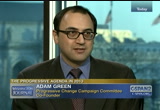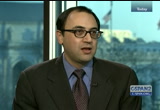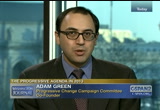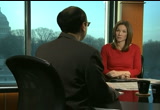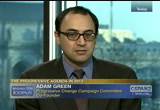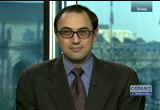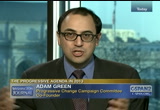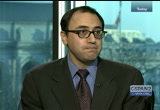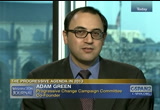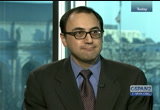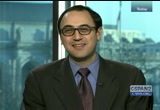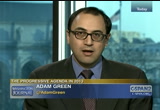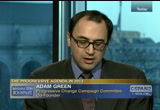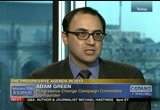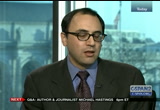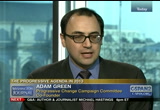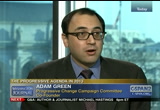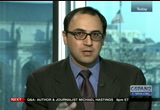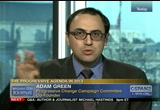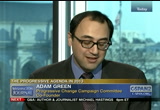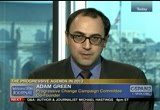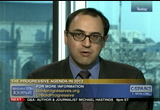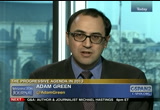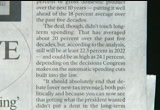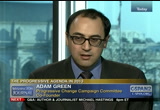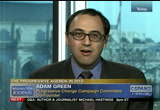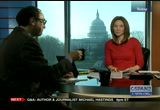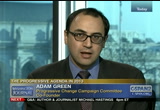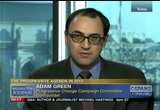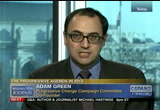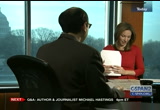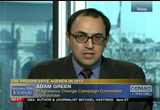tv U.S. Senate CSPAN January 9, 2013 5:00pm-6:00pm EST
5:00 pm
measurements can be used and the outcomes juxtaposed to the measurements support the programs that you need to put in place. >> i want to go back to frank, back to the international studying in brazil and your observations on that nexus between the environment and the economy, and then i want to come to gayle, switching gears entirely, and going back to the state park concept you mentioned in your opening remark, so, frank? >> thank you, lynn. we did travel to brazil together. i've never seen a more energetic herder than lynn. [laughter] she recognizedded most of the things we saw, including some i think you have never seen before. it's important to know why we went to brazil and what that tells us about the subject we
5:01 pm
are talking about today. we went there because we wanted to find out how brazil was doing in its effort to reduce the deep forrestation that was taking place in the amazon. is the first thing we did once we got there was go to a slaughter house. we looked at each other and said, we didn't sign up for that. what's that have to do with deforestation? turns out brazil's effort to reduce deforestization was to enact a law that required certain land owners, many land owners, to take a certain part of their land, a fraction of their land and keep that in natural state, meaning basically
5:02 pm
, and therefore they used two techniques. they used big agriculture like cargo, and they used slaughter houses, and the slaughter houses were given a fiscal help in form of loans if they committed to only buys cattle from land that went from land owners that were in compliance with the brazilian land law. this was a method of implementing a law that was intended to reduce deforestation, but the essence of that law was a very definite incringement into the rights of the land owner. they had to protect a certain fraction of their land and not let it be cut and made into pastures.
5:03 pm
they went to a standard 30% land that had to be kept in natural state with a private enforcement system. i thought that was an interesting technique, but the essence of it at the beginning of it was a rule that says "thou shall not take all your land and make it into pasture." that was possible in brazil, i think, in large part because the president who pushed it through was very popular. very popular. came from the people and had the feel. the big question was whether it would survive his tenure, and i think the answer is it has, but only in part.
5:04 pm
i don't know if lynn agrees with that, but you have to start with a standard, and that standard, or that goal or a standard oring? like that, and that will cause change, and that will be be an incringement into private property. it's not easy to see how that can be avoided. it can be -- you can arrive at that level, but if you have a serious problem, if you don't set that standard level, not clear to me exactly how you get to where you want to go. on the other hand, the method of getting there is open and ought to be very flexible, and at least that's one of the things that i learned in brazil. it does lead me to one question that i'll put to you, and you can address it whenever in this session you want to, but that
5:05 pm
is, what we talked about today, and i think this has been really constructive conversation by an organization that i am so glad exists to which is what two secretaries put together, and if it is true that climate change is going to affect every piece of property we're talking about, whether this organization is going to be able to address that issue, which is, of course, the issue that caused the land law in brazil that you eluded to. thank you. >> so, gale, turning to you to do two things. one, to respond to that question, but prior to that question, and among many conservatives, not only here, but around the country, whether
5:06 pm
the premise that frank put forward is necessarily true, terry and his colorado cattleman's association described the endangered species act as kind of the prod, if you will, or the motivator that drove some of your efforts, do you have a different way of looking at that? can you see, for example, a brazil situation operating in a wholly private market cop text or a wholly basedded incentive context? what are your reflections on that, and then, perhaps, turn to the climate question. >> there are so many things that we've heard people describe today, that are based on cooperative approaches, and the endless opportunity for people to come up and address those are
5:07 pm
what we are talking about, and the things working in brazil are not necessarily things that will work in north dakota, and we have to have people involved in finding solutions that will work for them. let me take off in a whole different tangent. in talking about the issue of climate change, there's so many voices talking about that today, and that's not really something that our council has addressed directly, and it may be something we look at down the road, but it is not really something that is part of the proposals that we are talking about today. there are some related issues. when i deal with agriculture, i often look at it from the perspective of water rights, that is an issue related to climate change. it's related to the crop production. i think it provides a great example of why there needs to be a conservative voice in the
5:08 pm
process. when we talk about water shortages and most of the projections are that we are going to have more and more demand for scarce water resources in the coming decades, and it can be a source of great conflict. from a conservative perspective, you look at the rights that have evolved of people who used that water who, in many legal regimes own that water right, and others come in and say, well, we need the water for other purposes, and so, let's just take it away from those people who have it now and put it to other uses. that is a prescription for disaster. it is a prescription for never being able to solve those issues. you end up in litigation. you end up in conflict. you end up with people fighting about how that water is going to be allocated. we -- when i was at the department of the interior,
5:09 pm
recognized that we looked at the southwestern u.s., especially, with growing populations and scarce water resources. how do you start a system that is going to allocate that water effectively? you use it through market insentives. you use it by recognizing the property rights of those people who own that water today. if you recognize that farmers owner a water right and somebody from a nearby city that needs more water comes in and says, well, we're just going to take that water, of course, you end up in huge conflict. if you come in and say we can pay you to put in some improvements in the irrigation system that is going to make that irrigation much more effective, it's going to save 30%-70% of the water that you use, while you can still produce crops effectively, you can find
5:10 pm
ways of cooperating, and have tremendous effects. if you forget about the basic concepts of markets and recognition of initial property rights, then you lose those opportunities for cooperative gain. i'll add to that, one of the papers, very interesting in the materials you have by stephanie gripny on energy, retrofits for old buildings, for example, in new york and elsewhere is a compelling look at the prospect for markets, investments in energy retrofits that ultimately have very significant impacts on reducing air pollution incoming greenhouse gas emissions, and at the same time, actually, have a positive return on investment. she explored -- and, i mean, naturally, a person in the
5:11 pm
marketplace, an advocate of free markets say, that's so good, why isn't it happening? anybody looking for a market opportunity ought to be there. she points out there's some structural problems of who has to pay for the capital costs and who benefits from the reduced operating costs. she points out sometimes that the return on investment is positive, but not as good as the same money invested elsewhere, but she then goes on to talk about very creative private investment solutions that could have some dramatic impact so i think that's another example of an indirects, the paper is not about climate, but it would have very indirect implications. i promised i was going to turn to the state park issue, and i'm getting waved here that it's nearly time to conclude. i do want gale, though, for you to talk a little bit about the state park issue, and, you know, the con cement of privatization or public-private partnerships goes back years and years. i remember the discussions, and,
5:12 pm
yet, there's a lot of nervousness about the concept, and people raised legitimate concerns of will such partnerships, contacting approaches resolve in commercialization of parks in the way that they are not intended to be. will it resolve in an emphasis on all visitors serving heavily impactful activities and lead behind the wild places? thoughts on that, as we just round up and conclude here. >> when you talk about park management, you audiotape are faced with the -- often are faced with the question of maintenance and how you deal with the infrastructure, you know, how you spend the money that it takes in order to maintain the parks, and when you look at that in, for example, a federal government context, and i think the same kinds of insentives operate at the state and local level, if all of your funding is
5:13 pm
coming from a legislative body, you, as a park manager sit there and say, okay, how do we get money from the legislature? how do we get money from the congress? well, we dramatize what our problems are. when i was in washington, the first time around in the 1980 #s, the park service was looking at budget cuts, and so what did they do? they shut the washington monument. they -- or, excuse me, it was the bathrooms at the washington monument. [laughter] they shut down skyline drive which is the place where members of congress like to go for a drive on a weekend. they did the highest profile things to show that they were having serious problems and really needed to have that money. well, if you have so many creative approaches and more sort of public-private partnership approaches, you know, some of the maintenance
5:14 pm
needs might be solved by having private companies come in and build and maintain historic building, build a visitors center, and then be able to recoop that investment, and that is a mechanism that works very well in the public-private context. looking at user fees, you know, we are in a situation today everybody who is every 62 can go get a park pass for $10 that gets them into every national park for the rest of their lives. you know, my husband and i are very happy to be looking at that in our future. [laughter] it doesn't make a lot of sense from the per speck -- perspective of how you best manage parks and get the resources you need for managing parks, and so that the paper that is in our report today talks about many of the practice call things, looks at many
5:15 pm
places where the public-private partnerships have been very beneficial in providing recreational amenities, in protecting the environmental resources of parks, and some very practical things state legislators can look at to see how they can avoid shutting down a park, and instead, continue to provide recreational opportunities. >> i'm told there's time for another question. is there a zinger out there? yes, jp? >> what's next? impressive group, you have the eyes and ears of the entire conservative movement when it comes to the environment and conservation. i turn to your peers and colleagues, secretary norton, governor schaffer, everybody on the council, you have everybody's attention. what are you going to do now? >> a perfect way to wrap up. gale, make a comment, and then secretary schaffer.
5:16 pm
>> for me, this is all about inspiration. i like the idea of getting those good concepts out there, getting good ideas out to everybody because you plant those seeds and they can grow in ways you can never imagine. i think that is a great part of what this organization can do is help with our round tables, our papers, through communicating with people to spread great ideas, find where something has flourished in one place, and provide that insight to others, and so we'd like to take some of the principles that are important to us both in terms of recognition of individual rights and markets and innovation, american ingenuity, and spread the word how they are applied to environmental issues as well. >> secretary schaffer?
5:17 pm
>> again, thank you, all, for coming, and i know we'll continue the conversation over lunch, and to be able to figure out what's next. i think the interesting thing about the conservation leadership council started with a spark of an idea a little over two years ago i think, and i didn't do much more than say, yes, i would be a part of it, and it's risen to the point today where the input generated the papers, the round tables that we had, and the important thing is the council is dedicated to listening to the people. i mean, we're sitting here in the top of the hill and overlooking our magnificent capitol of the united states of america knowing that the policies over efforts of the country are generated by the people, and we need input, will continue to do round tables,ment
5:18 pm
you to not stop the conversation today, but start the conversation today, hit the web page leading with conservation.org, leave your comments k look at the input, and we'll continue to develop a conversation that we hope will generate public policy at the state, local, and federal level to help with conservation across the country and beyond so we're just starting. >> i think with that note, i'll wrap up. we have lunch coming, but i want to reflect on the words of my favorite my loss ser, as we look at this forward momentum, he says, "the future ain't what it used to be." let's move forward to that future, and let's have some lunch. thank you. [applause]
5:19 pm
5:20 pm
dangerous because as i say so much in the book, they are not a collective unit, and presenting them as much tends to dramatically oversimplify the politics of the founding generation, and then it comes to be used as a big battering ram to beat people over the head with in ways that i think are boast historically incoheerpt and unsound. >> provest and english professor on what he calls "the deep historical flaws". he shares views with george washington university associate professor of law on booktv's "afterwords" sunday 10 #p.m. eastern on c-span2. >> host: progressive agenda in 2013, our guest, adam green, begin with the fiscal cliff negotiations and the final deal
5:21 pm
that was put forth. a quote from you in the "new york times," "the president remains clueless about how to use leverage in a negotiation." >> guest: did i say that? >> host: what do you mean? >> guest: progressives have been clear since the beginning of the fiscal fight, a line around the area of that we cannot cut benefits and taxes should go up for those making $250,000 and above. there's a direct correlation between the two. going to the $400,000 rate, we left hundreds of billions of dollars on the table making it likely that social security benefits are threatened in the upcoming round. you know, the republicans have gone on national tv saying we lost this fight. we are going to have to vote for $250,000 and above. national prominent republicans said that continuing to give stuff away. we were not happy about that because we care about the benefits. >> host: the president was quoted saying "the officers made to them have been so fair that a lot of democrats get mad at me." so he falls them fair.
5:22 pm
>> guest: yeah. what we have to debunc is the idea if the left and right are angry, we must be doing something right. our organization commissioned a professional poll of swing states like new hampshire and virginia. in the state of new hampshire, live free or die. they do not have app income. 75% to 11%, even to reduce the deficit, do not cut social security benefits. now, progressives, like myself, asking for a purity on the 75% portion of that issue is completely different from those on the right that are standing up to the 11% popular issue. his version of fair is essentially proposalling a 50/50 compromise or 60/40 compromise on the other side saying the votes. if 75% of the people are on the side, he should hot give a 50/50 deal to the republicans. >> host: too late, dick
5:23 pm
durbin, second in charge of the democrats, said look at deductions and loopholes, but say anything about going back to individual tax rates. >> guest: because we left hundreds of billions of dollars on the table in that round, the bar is higher for democrats this round, and that's numerous answers to make sure we preserve social security, medicaid, and medicare benefits. there's hundreds of billions of dollars in corporate tax loopholes, they can get away with murder, and venn the leader of the republican in the senate was on "meet the press" this weekend granted there were tax loopholes to be addressed. here's the difference. republicans want this to be revenue neutral, plug loopholes, save billions of dollars, and give that back in the form of lower tax rates for corporations. republicans have to say, no, especially since we gave you, you know, more on taxes in the last round. we demand that hundreds of billions of dollars go right to address the deficit or preserve
5:24 pm
social security and medicare. that's where the fight will be. >> host: you're okay, your group's okay with going after deductions and loopholes rather than going back and trying to get more tax revenue? >> guest: let's put it this way. if any democratic or progressive leader in congress or back benching in congressments to be a leader and says op telephone we will put the $250,000 rates on the table, we'll support that, but at the end day, we want to make sure social security and other benefits are prereceived, and if democrats are successful in doing that by taxes corporations more as opposed to taxes more high income individuals more, i think we'd be fine with that, but the singular white line at the point is where benefits be cut? they say no. >> host: if they are cut, what's your group do? >> guest: well, if they are cut or hoppestly major democrats publicly put it on the table, there's somewhat of a nuclear war on the left.
5:25 pm
we will, you know, probably have a fractured party the next two years, which would be, i think, to the detriment of the president, unfortunate, and it would be in the democratic primaries. we would start right away recruiting challengers. we have a million members across the country, involving people who are local democratic elected officials, union lerdz, local party officials, and grassroots activists beloved in the communities, and we would e-mail districts of those who support benefit cuts, and say, hey, who wants to run for congress? >> host: have you launched that warning to some members of congress? >> we have. we have launched it publicly, and we have a more generic sense saying it's a warning. we want to be transparent, and, honestly, we don't yearn for the war on the left. it's ironic for us, me, woke up in 2008 and thought what can i do today to get barack obama elected president. having fight a democratic president on social security and just to be clear, he put -- he
5:26 pm
publicly admitted he put social security benefit cuts on the table. that is not a position i want to be in. that's not what i worked for in 2008, and what some of the other people worked for >> host: worked for it in 2012? regretting working for the president? >> our organization prioritized congress in 2012. the number one candidate was elizabeth warren calling out the ig and big wall street bankers yesterday. we raised over $1 minute 15 million, from 69,000 small grassroots contributions. >> host: in the last election cycle? > guest: the last cycle. it was a couple months before she decided to run, raised $100,000 before she decided to run so on the day of the campaign she could hire a staff and port together a confident campaign, which she did and had 30 candidates overall this cycle that were successful. we ensured we didn't work to undermind the president. that would have been a disaster if mitt romney was elected with the republican senate, but we
5:27 pm
wanted to make sure we actually -- when we asked members, many on fixed income to donate $3 to a candidate, that we did that with clean hands and combat for true progressive, bold candidates. >> host: one industry with positive numbers in the recession is the energy and gas industry. we are talking about jobs here, and in those states that have that industry, their unemployment rate remained very low. here's the headline today in the newspapers online from quoting the american petroleum institute's president saying industry poised to help u.s. economy grow further in 2013, but warned about more taxes op companies, gas and industry companies, that that would hurt their ability to help the u.s. economy grow. talking about jobs. >> guest: the petroleum industry, and the big oil companies love getting tax loopholes, and again one of the myths to solve in the popular
5:28 pm
conversation here in dc is the idea that these big companies are the job creators. frankly, they had a decade to create jobs. they failed. giving them billions of dollars in dax breaks does not result in jobs, but moving the money overseas. every once in awhile, they hire a hundred people. i could hire more than a hundred people with billions of dollars. giving these guys more tax breaks at the expense of our grandmothers on social security, medicare, and medicaid is not the solution. you know, the best way to create, solve the deficit issue is to create millions and millions of jobs for regular people. we could put a million people back to work now by rehiring the people fired by republican governors in the last two years so i think that the line is clear, especially in the next round of debates and especially if taxes are debated. little guy workers and grandparents like my grandparents, social security and medicare. >> you referenced this so i want to let viewers know, here's the
5:29 pm
opinion section of usa today about ait with their view, "so much for gratitude, aig mulls sues against the u.s. government for the bailout on behalf of its shareholders. >> guest: drowning in the water, and who is saved by some hero and then says, hey, while you saved me, you choked me a bit so i'm going to sue you. that's what they are doing, and yesterday, elizabeth warren came out publicly, giving it straight, front and center, and said this is absolutely wrong. it is unconscionable, and i think that it's a real bresh of fresh air to have someone who does not beat around the bush, but to say bad corporation action is bad action. >> host: phone calls here, shirley, tallahassee florida, democratic caller. >> caller: good morning, america, and thank you for c-span, and thank you for your guest, i wanted to make comments in reference to the agenda we
5:30 pm
have to have as a nation. we, of course, in terms of social security, medicare, and medicaid, we're looking at the cap. i would love c-span to do a program on just the parameters and try to have two guests on relating to the cap. the cap, of course, being two a house hole with two high earners who, for almost 30 years did not pay the social security cap would get into the social security cap limit around mid june. with that, i always thought it strange because i, you know, my family member and friends, who, of course, were paying the full social security tax on their income tax, i thought it strange and unfair. if we were to go to where we
5:31 pm
were to reduce, reduce the rate, in fact, permanently for everyone, if we increase the cap. that would create solvency for eternity. with medicare, we should have people who are able to pay a higher co-pay, such as myself and my husband, pay the higher copay based on the income. now, i'm not understanding and clear about means testing because if we create means testing, seems to me, when you say "means testing" it puts it in the realm we are not collectively in the program. >> host: leaving it there. what about the idea? she's open to getting some cost reduction out of medicare. >> guest: yeah, thank you for bringing that up. that gets to yet another point we have to debungs in the conversation. oftentimes democratic politics are posed a question, do you support entitlements on the table?
5:32 pm
that addresses two completely different things. one is reforms which you're talking about, which largely do not affect people like my grandmother, and other is benefit cuts which they are drawing a line around saying do not cut these things. address your points. you know, for all the talk in social security sol sen visitors, it doesn't contribute a dime to the deficit, and any come police station in the deficit is just that. if we tear about making more solvent than it already is, vying for decades, extend decades more, we can do what you say, which is to merely say, hey, warren buffet, a billionaire, who only paces social security tax on the first $106,000 or so the income, raise that cap, and through raising the cap, sing the measure alone, we can, you know, solve any social security issues that people have. on medicare, what you said is interesting. i point to one other reform that will be more out there for us which is dick durbin said this in a speech to center of
5:33 pm
progress, and if we negotiate with the drug companies for lower rates, use a scale to negotiate lower rates, which due to lobbying pressure, they are prohibited by law from doing right now, allow that one step, we save $130 billion for taxpayers, essentially stopping big corporations from ripping off taxpayers by $130 million. is that entitlement reform? can we address that? yes, that's great. we'd love to stop ripping off taxpayers. is it benefit cuts? no. when we hear this issue, we have to focus on the word "benefits," and the word "entitlements" is money in the water. thank you for bringing that up. you brought up the contours of the progressives and north americans would be chuckled. >> host: a debate between two, bill says at the top here, "closing loopholes, why aren't liberals supporting that? we're talking about stealing more money here," and frank
5:34 pm
responds, "we support closing loopholes, begun said they had a list, let's said it." >> guest: we support it. >> host: have you seen a list from republicans? what's on the table? >> guest: corporate tax loopholes is what they are talking about. and sometimes republicans talk about not letting them deduct the cost of of lying a home, and we would not support thatment i don't know exactly what the republican list is, but i know that mitch mcconnell said this weekend and granted the fact there's hundreds of billions of dollars to be savedded cutting corporate taxes. >> host: laura says we don't need deductions on second homes. there's room for reform. >> guest: sure. anything -- it's a matter of fairness. sometimes people talk about shared sacrifice, basically the idea that we should just set the reset, you know, push the reset button, start from scratch, and pony up, bottom line, over the
5:35 pm
last decade, there's been income inequality very profound in the country, more than it already was. the rich gets away with not paying the fair share, and the top priority is to make sure they pay their fair share, whether it's this deduction or that deduction. if it hits those in the higher income levels, that's fine. if it timely asks corporations who have been slacking on responsibility to pay their fair share, that's fine, but if it's going to hit a household, you know, making $40,000 a year, going to hit a grandmother on social security and medicare, that's not fine, and all of us need to be on the phones calls our elected representatives and have the confidence that in a state like new hampshire, by 75% to 1 # 1%, voters say don't cut social security. people on our side, ensure politicians in dc recognize than that. >> host: a republican caller, hang for another second, i have to go to one on twitter saying, "why not raise deduction caps on social security? gorge j. bush did it.
5:36 pm
>> guest: deduction cap? i don't know -- >> host: when it comes to wealthier people, doing something about that for social security. >> guest: again, this is the cap we're talked about before. absolutely, again, warren buffet pays taxes on the first $106,000 of the income. raise that. that solves the problem. >> host: just for social security, you're open to that? >> guest: sure, yeah. >> host: ed, republican caller, hi, ed. >> caller: good morning, c-span, thank you, again, for the program again. when i hear the word "progressive," i try to understand that term in terms of, you know, people historically that, you know, below in that particular viewpoint, and, you know, understanding this type of a guest today a little better. is it something to explain historically, people who were progressives, and also more about what -- where they see the country going and the general overview of what a progressive believes in, people who align themselves historically with that agenda. i hear that term all the time
5:37 pm
for people, you know, that are, financial positions, and different places in the united states, and, also, political parties, members, whether republicans agree or disagree or the president's reference or the progressives, people talk to them about that so just trying to understand that term a little bit better, you know, so i'm -- you know, where the school of thought comes for the word "progressive." >> guest: that's a great question, and i will say that my progressive change campaign committee co-founder, stephanie taylor, is a labor historian, getting her ph.d. in this and would have profound answer to your question on this one. that's stephanie taylor on twitter. what progressive means to me, because i get the question a loss, and for us, it's about economic pop pew lism, fighting for the little guy in the economy, standing up to big entrenched powers, and yet, you know, there's essential issues and foreign policy issues, but for us, the issue of our day is corporate power and standing up for the little guy, so with that
5:38 pm
principle in mind, that guides our position on things like social security, medicare, and medicaid. it decides our decision on, you know, what kind of job creation do we want? huge tax breaks to the big guy or employing the little guy? guides decisions on campaign finance, a major priority of ours in the congress, do not spend hours and hours every day like a "huffington post" wrote about yesterday, but insent vised to go to grassroots events, talking to everyday people in the districts, asking for $25 contributions. any other issue you name on the economy. that's what it means to me, but, again, there is a profound, you know, history of you know, progressivism in the country and going centuries back, and i definitely encourage you to learn more and check out my co-founderer @stephanietaylorn
5:39 pm
twitter. one of the big stories coming out the 2012 election day was democrats got two seats in the senate. amazing. the real story is the composition of the senate. bill lieber man is out. ben nelson from nebraska is out. conrad from north dakota is out. warren is in. baldwin from wisconsin is in. chris murphy, a progressive from connecticut is in. others making interesting statements on guns lately, a prairie popular who fights for the little guy. we are thrilled with the composition of the new senate. one of the little factoid for you, you know, about two years ago, the blue dog caucus, the conservative caucus in the house, had 74 members. going into this congress, this week, there's 14 members. meanwhile, the progressive caucus expanded, and people supported this election cycle,
5:40 pm
raised money for and made millions of phone calls for were elected. there's a crop of awesome people in the house and senate, and i think that's inherently that we'll have more of a push to the left, i guess, but really to the center of the country if you look at the polling. >> host: if barnny frank is a seat holder for john kerry, if he's secretary of state, what do you think that does to negotiations over the next budget battles? >> guest: oh, well, i don't think it's that different from john kerry, but i think he would be a strong voice in the senate. you know, our -- again -- >> host: john kerry voted for the fiscal cliff deal. >> guest: right, and i'm pretty sure frank did as well. there's a lot of democrats, who, i think, made a tough decision to support the deal, but oftentimes did so with the bow that we hold them to that in the next round they do not cut benefits.
5:41 pm
back to barney frank for a second. i spoke to the congressman last night about this, and thinking about publicly getting involved in this with some of our 25,000 massachusetts members. our biggest issues is cuts to social security and medicare and medicaid benefits. i'm convinced he would be an active fighter. we have to make sure both in the appointment and whoever wins next election, we don't have somebody canceling out elizabeth warren. >> host: did he seek out your endorsement? you're help? >> guest: not that way, we met a couple times, and i just wanted to talk to him. >> host: okay. so what kind of resources do you have to help him? >> guest: so, again, we have nearly 1 million members across the nation, 25,000 in massachusetts. this is a unique campaign because there's one person who is the voter, and that's the governor. i think there, the main point would be just an expression of support for massachusetts residents, and those watching now, duval patrick when it's 9
5:42 pm
a.m., and tell them you want barney frank if that's who you support. >> host: just a place holder or change his mind and run? >> guest: i wouldn't call him just a place holder. >> host: sowing the seed, does he want it permanently? >> i think he decided not to run because he didn't want to have to deal with a redistricting or run for senate, and he's pretty much made that clear. it's a consensus choice. you know, we're in the very front stages talking to him and his people as well, and i think that will be a more pressing battle, particularly at stop rounds running. the resource we have, we raised over $2.5 million for progressive candidates this sickle, and over $250,000 small dollar foundation. we have people power at the table, everyday people who want to support bold, progressive candidates, and so that's what we bring. we bring that, a nation full of people making phone calls, making over 2 million phone
5:43 pm
calls this cycle, and people who are willing to get home from work after a tough day, care about the country, and spend two hours on the phone calling key voters. there's a system where we only connect people to live voters rather than answering meshes. we give advice. it's what we do working with campaigns to make sure they will not blowing all the money, use best practices, not 20-year-old practices, and making sure that as we ask people on fixed income to donate to a candidate, it's not wasted, but going to an efficient campaign. that's what we bring to the tail. >> host: how do senate democrats vote on the name nation of senator chuck hagel? >> guest: organizationally, we have not played into that. groups including iraq veterans, j-street who focus on those issues, and they can talk about that. >> host: carol, arizona, independent caller, hi, carol. >> caller: hi, i was just wanting to ask about the tax reform if you would be straight
5:44 pm
across the board tax, no loopholes. >> host: adam green. >> guest: opposite of a flat tax is a progressive tax. i would oppose that, but here's why. the simple reason why is that the rich need to pay their fair share, and pretty much every study done shows flat tax increases taxes on the little guy. it's that simple. another idea on the table talking about this. you know, oftentimes, the conclusions in washington are based on what choice did we have on the table which means if they exclude certain choices from being in the discussion, good choices can't be made. a great choice would be congresswoman's millionaire tax going beyond clinton rates, but
5:45 pm
it's supported in the country saying we're going to ask people making a million dollars or more to pay 45% on that income above a million dollars. $10 million, 46%, $20 million, 47%, 10000 million, 48%, and a billion dollars, 49%, which is below 50%. what's that do? raises a trillion extra dollars over the next decade. what would that do? that would allows to safely take benefits off the table. that allows us to safely rehire lots over lots of teachers who were fire and put people back to work and wire the world with the internet. that would be great. how many people -- push not a flat tax, but progressive taxation which in the grands scheme is moderate.
5:46 pm
>> host: charles next, buffalo, new york, democratic caller. hi, charles. >> caller: how are you, thank you very much. long time, i hate to see this, hate time listener and watcher. mr. green, you opened your conversation with how poor the president was in terms of a particular facet of government or policy development. can you tell us about your background in negotiations and your background working history in washington? >> guest: sure. i think my background in working history in washington is more relevant, but i went to law school after taking the bar in new jersey and new york. passed it, worked from my home state democratic party of new jersey as a communications director, and worked prior to that on major south dakota u.s. senate race in 2002, and won the top senate race in the nation by 524 votes, and during that
5:47 pm
election saw very pro-life, pro-gun farmer and ranchers for our democratic candidate because he was bold on economic issues and fighting for the little guy. workedded as a national democratic press secretary in oregon in the 2004 presidential election, and then, actually, made a mental conversion from being what i call a democratic to a progressive movement activist,mented to be part of something larger, and be on a set of ideas, and i joined moveon.org, still one of the leading fro -- progressive organizations, and aclay mated to politics with that, and did that for four years, and then in 2009, actually, four years ago and four days and two days ago, four years and two days ago, we launched the progressive change campaign committee with stephanie taylor. our basic near ri was to build progressive power, recruit a left, fund raise for and mobilize around progressive
5:48 pm
candidate, and more important, engage in the issue battles of our time and open up new space, talk on new issues to have a fuller agenda, and can't just think two year election cycles, but the 20-year plan. we have to invest in new leaders, find people you won't here about in five years, but cultivating the state level now, a battle of ideas and reach out to the academics and professors and start bringing together these people with great ideas in the universities with people who want great ideas in congress, at the grassroots level. that's where i stand. in terms of negotiation, honest,ly, i point to the way we have the progressive change committee. we do our homework, never ask politics to do something that would be unpopular with voters back home, we make the case, and as i said before, in new hampshire, 75% to 13%, people say don't cut social security, and then we merely ask politicians in washington, d.c., be responsive to the constituents back home and put
5:49 pm
our finger on the fact that many times in washington, d.c., as much as they pry that issue or draw a line in the sand around an issue are not representing, even republican voters back home on the economic issues of the day. that's a strategy we bring to the table, and i would invite critique, but the basic premise is if you're on the winning side of a 75%-13% issue, cut p 50/50 deal in the case. >> host: fiscal deal boosts gdp share of taxes, and spending torque highs, the deal that president obama and congressional republicans struck last week send revenues soaring above the average, but did nothing to control spending which remaining stub borch -- stubbornly high saying "this should absolutely end the debate over new tax revenue politically and you see now getting what the president wanted didn't put a dent in the long term problem,," and i add this, a story about nancy pelosi's agenda in the
5:50 pm
house in the "new york times" saying democrats will entertain spending cuts, by reductions have to be considered separately from the debt ceiling and cuts too deep or aimed # at the wrong program, she says, "hurt the nation in crucial areas like education, technology, science, and energy." what's on the table for cuts? no social security, no medicare, the major drivers of benefits, but are the drivers of debt and deficit. what's on the table for spending cuts? >> guest: okay. there's a lot of questions there. >> host: right. >> guest: first of all, you know, the major drivers of the current deficits are two things. tax cuts for the wealthy and wars in iraq and afghanistan. this has been well documented by economists. let's not pretend like grandmother is responsible for the deficits. she's not. i promise you. yeah, you know, what would define a spending cut, again, cutting the amount of money that would pay for prescription drugs.
5:51 pm
getting the same drugs for $130 billion cheaper by untying medicare and medicaid's hands and lay low them to negotiation. that's a cut to save money, impacting the big guy, not the little guy. you know, if we sub subsidize ie name of family farmers, agriculture corporations. we, warn in the campaign talk about a balanced, and the rich on the revenue side, and increase the revenue side, and cut ag, cut wasteful military spending, and address some of the oil subsidies, and that's spending cuts. corporate welfare spending cuts, and they impact the big guys first on the table. we can want put people on minuscule incomes or grandparents on the chopping block and pretend, which is what it is, pretend like they are responsible for the deficit. again, one thing that we need to also just ri mind folks like
5:52 pm
this who say the president got everything they wanted, you know, the organization has a track record of being able to hold the president accountable, one of the leading groups out there running ads and organizing people. here's one thing to give credit for or defend him for, often times republicans draw certain lines in the sand, force him to change his plan and in attempt to get their support. their part of the plan does not work and point to him saying, hey, they got everything they wanted and it didn't work. let him tax the public option, regulate wall street more, don't fire a million teachers, and then we'll see if we have millions of people back to work and more on the payroll. >> host: republican, eddy in massachusetts. god, eddy. >> caller: good morning. liz warren sounds like ted kennedy did over the years give me schools, roads, teachers, policemen, firemen. how do you pay for it? over the last four years, we have $5 trillion deeper in debt.
5:53 pm
now you blame the corporations. we have a distinction of having the highest corporate tax in the world now. japan lowered theirs, and canada lowers theirs to 15%. what are you going to do about that? thank you. >> guest: i talked about solutions it that. again, just by enacted the millionaires tax, we have a trillion dollars on the table to impact those least likely to hire people, those would be very, very high income level on the personal taxes, ewe know, do not hire a second mate for the yacht or a maid for the house. we raise a trillion dollars. that answers your question. that would be plenty of money to rebuild crumbling schools and money, and rebuild infrastructure of this country. in addition to that, i identified hundreds of billions of dollars in corporate tax loopholes to impress. again, it just -- that's basic
5:54 pm
answer to your question. >> host: roy, illinois, independent caller. >> caller: i was just wondering about the progressive party. is it attached to the democratic party? is it a member of a third party? i don't understand. are you just trying to eradicate the democratic party? >> host: let's get an answer. >> guest: so we are not a party. we are part of a movement. i remit an organization that's part of a lancher progressive movement. think about the difference between party and movement. there is a conservative movement that is separate from the republican party. to the credit, sometimes they are more right on issues than the party leaders would be who are funded by big corporations and have narrow agenda that does not represent the people. on our side, you know, we have only supported progressive democrat candidate like elizabeth warn for senate, and
5:55 pm
allen grace in florida, and people in california like mark decano and mark pecan in florida. the list goes on and on. they are democrats, but they are the people who are bold fighters. we're trying to change the democratic party from within. there are people who talk about building a progressive party, that could be in the future, but bottom line is are you standing up for principle? are you fighting? one thing we fight for as part of the effort to retake the democratic party is campaign finance reform. public funding of congressional election. for a preview of how the basis works is, well, right now, politicians are incement vised to call billionaires asking for thousands of dollars. 23 you raise $5, you get a chunk of public money. if you opt in and raise $100
5:56 pm
max, every dollar you raise get matched four or five to one depending on the proposal. that insent vises people building a grassroots base, not going into a little tiny room, a bright light, calling millionaires, but being back in the dribbing, talking to voters, cultivating donations. it would be game changing. completely change who politicians listen to as they stand up to the issues. biggest thing against us on the democratic and republican party is corporate money and corporate benefactors who expect special interest so we will fight that. >> host: does the growth of the agenda benefit the american public? least productive congress ever, talking about the partisanship and that is not led to productivity because as one congressman is quoted as saying, 112 fought about everything. >> guest: right. so to state the obvious, this is not a progressive congress. you know, this is a republican-run congress in the
5:57 pm
house, and that is what led to most of the lack of productive. >> host: the divide between republican controlleddous and democratic controlled senate. >> guest: right. so once again, chatter a moment about the idea that both parties are somehow equally come police sit in this dysfunction. it's been pretty well observedded that on every major issue, the tea party and republican congress' answer is no. even on a 75% to 1 # 1% issue. if democrats cave and go for the lion share over the republican side, they still will say no. even when democrats propose, you know, lowering taxes only on 99% of the american people, many of the tea party still say no. the idea that we have generic dysfunction, the idea a we are not going to attribute blame to those who are blameworthy is, frankly, i don't know, cowardly, just off base, and the biggest by-product is that it sends a
5:58 pm
false message to the american people that they should roll hands up and be less engauged in the process because the progress, you know just does not work when the real solution is get behind politicians who represent your interests and who can act in good faith. >> host: adam green, co-founder of the change campaign committee, bold boldprogressives.org. thank you very much for being here and talking to the viewers. >> guest: yeah, great to be here and answering questions.ñ
5:59 pm
71 Views
IN COLLECTIONS
CSPAN2 Television Archive
Television Archive  Television Archive News Search Service
Television Archive News Search Service 
Uploaded by TV Archive on

 Live Music Archive
Live Music Archive Librivox Free Audio
Librivox Free Audio Metropolitan Museum
Metropolitan Museum Cleveland Museum of Art
Cleveland Museum of Art Internet Arcade
Internet Arcade Console Living Room
Console Living Room Books to Borrow
Books to Borrow Open Library
Open Library TV News
TV News Understanding 9/11
Understanding 9/11